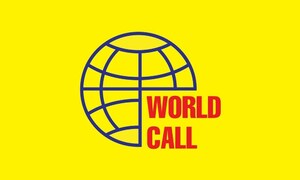ISLAMABAD: The Petroleum Division has expressed its reservations over the imposition of an additional Rs10 per litre petroleum levy (PL) on motor spirit (MS) and high-speed diesel (HSD), raising the levy to Rs70 per litre.
This move, aimed at collecting an additional Rs58.6 billion to reduce the electricity tariff by Rs1.71 per unit, is being seen as an unfair burden on the petroleum sector, well-informed sources told Business Recorder.
The Petroleum Division conveyed its concerns to the Power Division through a formal communication, drafted and dispatched on April 7, 2025. This correspondence was in response to a Power Division summary submitted to the Economic Coordination Committee (ECC) of the Cabinet under the title, “Tariff Rationalization for Power Sector.”
July-Feb 2024-25: More revenue likely by increasing PL by Rs10/litre
Prime Minister Shehbaz Sharif had earlier announced a reduction in electricity tariffs — Rs7.41 per unit for domestic consumers and Rs7.69 per unit for industrial users. However, the sustainability of this relief remains uncertain, as it depends on international energy prices and the availability of hydropower during the summer months. Following a drop in international petroleum prices, the petroleum levy was increased from Rs60 to Rs70 per litre on March 16, 2025.
The Petroleum Division cautioned that if petroleum prices rebound in the remaining months of the current fiscal year, the government may have to either increase retail prices or reduce the PL rate to shield consumers, which would result in PL collections falling short of the Rs58.6 billion target.
The Finance Division has set an ambitious PL revenue target of Rs1.281 trillion for FY 2024–25. As of February 2025, Rs744 billion—58 percent of the annual target—had been collected, making it challenging to meet the overall target.
The Petroleum Division also highlighted the financial difficulties facing the oil sector. In recent years, sales tax on MS and HSD was reduced to zero to prevent the build-up of input tax for refineries and oil marketing companies (OMCs), resulting in estimated losses of Rs35 billion in the current fiscal year.
To address these concerns, the Division emphasised the need for immediate action to ensure the sustainability of refineries and OMCs and to support planned upgrades. A proposal to impose a three percent sales tax was not pursued further due to the IMF’s recommendation to apply the standard rate of 18 percent—an increase that would raise MS/HSD prices by Rs47 per litre.
In addition, the IMF has recommended introducing a carbon levy of Rs5 per litre, which would further increase fuel prices for consumers. “The Petroleum Division remains neutral regarding the Power Division’s request for additional funds. However, it is essential to consider the potential impact on the petroleum sector and to avoid placing additional burdens on it, especially given the challenges it is already facing,” sources quoted the Petroleum Division as stating in its communication.
Copyright Business Recorder, 2025























Comments